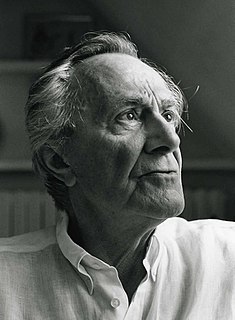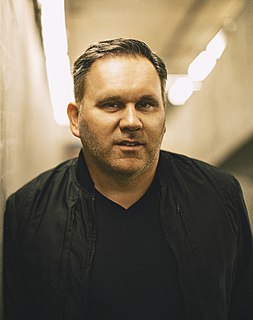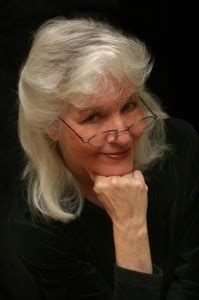A Quote by bell hooks
To the extent that we live in a postmodern world and it shapes the concrete circumstances of our daily lives, I would say postmodernism affects my work or influences my work.
Related Quotes
I've never really found inspiration for story ideas in the news, but I'd say it certainly affects our lives in so many ways. I would say that certainly the stories of the day appear in the work - I just have never gone so far as to say, well, this particular event could influence a plot of an entire book.
The way we live our daily lives is what most effects the situation of the world. If we can change our daily lives, then we can change our governments and can change the world. Our president and governments are us. They reflect our lifestyle and our way of thinking. The way we hold a cup of tea, pick up the newspaper or even use toilet paper are directly related to peace.
Faith and daily life, faith and work-these are not separate things. They are one and the same. To think of them as separate-that faith is faith, and work is work-is theoretical faith. Based on the recognition that work and faith are one and the same, we should put one hundred percent of our energy into our jobs and one hundred percent into our faith, too. When we resolve to do this, we enter the path of victory in life. Faith means to show irrefutable proof of victory amid the realities of society and in our own daily lives.
My brethren, let me say, be like Christ at all times. Imitate him in "public." Most of us live in some sort of public capacity-many of us are called to work before our fellow-men every day. We are watched; our words are caught; our lives are examined-taken to pieces. The eagle-eyed, argus-eyed world observes everything we do, and sharp critics are upon us. Let us live the life of Christ in public. Let us take care that we exhibit our Master, and not ourselves-so that we can say, "It is no longer I that live, but Christ that lives in me."
There appear to be no integrating forces, no unified meaning, no true inner understanding of phenomena in our experience of the world. Experts can explain anything in the objective world to us, yet we understand our own lives less and less. In short, we live in the postmodern world, where everything is possible and almost nothing is certain.
However diligent she may be, however dedicated, no mother can escape the larger influences of culture, biology, fate . . . until we can actually live in a society where mothers and children genuinely matter, ours is an essentially powerless responsibility. Mothers carry out most of the work orders, but most of the rules governing our lives are shaped by outside influences.



































